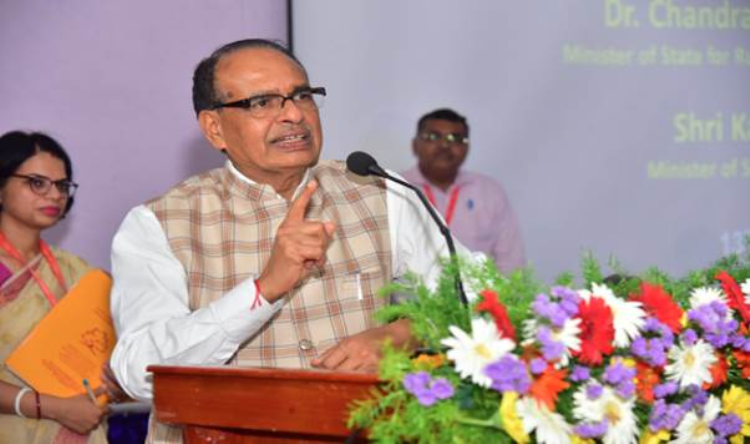Shivraj Singh Chouhan Reaffirms VKSA as a Dynamic Strategy for Farmer Empowerment
Shri Chouhan lauded the success of the VKSA campaign and highlighted the essential role of institutions like IIVR in realizing the government's vision.

- Country:
- India
At a pivotal review meeting in Varanasi, Union Agriculture Minister Shri Shivraj Singh Chouhan underscored the transformative vision behind the Viksit Krishi Sankalp Abhiyan (VKSA), declaring it “not just a ritual, but a dynamic and continuous effort to revolutionize Indian agriculture.” Addressing scientists and researchers at the Indian Institute of Vegetable Research (IIVR), the Minister outlined a clear agenda to bridge the gap between agricultural science and the everyday needs of farmers.
VKSA, rolled out nationwide, is a flagship initiative aimed at enhancing productivity, ensuring sustainability, and improving the economic well-being of farmers through technology-driven and farmer-centric research and development.
Focus on Innovation and Research-Based Farming
Shri Chouhan lauded the success of the VKSA campaign and highlighted the essential role of institutions like IIVR in realizing the government's vision. He emphasized the urgent need to:
-
Enhance shelf life of key vegetables such as tomatoes to reduce post-harvest losses and improve market viability.
-
Promote genome editing and seed treatment technologies to build resilience in vegetable crops and improve nutritional output.
-
Support organic and natural farming as critical elements of sustainable agriculture, particularly to serve export markets and reduce chemical dependency.
-
Accelerate research on crop varieties suitable for processing into dry powders or other value-added products.
These scientific pursuits, he stated, are not ends in themselves but should align with farmers’ practical needs and challenges.
Combating Agricultural Malpractices
The Minister also issued a strong call to protect farmers from systemic issues such as:
-
Circulation of counterfeit fertilizers and substandard seeds
-
Unregulated pesticide usage
-
Lack of accountability in agrochemical distribution
To address these, he proposed the development of a comprehensive regulatory and monitoring framework, backed by real-time reporting mechanisms and farmer education drives. He also recommended that agricultural institutions work in tandem with local Krishi Vigyan Kendras (KVKs) to increase awareness and enforcement.
Advancing Farmer-Led Innovation and Cross-Sector Collaboration
Shri Chouhan emphasized that innovation should not remain limited to labs and institutions. “Farmers are innovators in their own right,” he said, urging researchers to document and amplify farmer-led agricultural practices that demonstrate resilience, innovation, or yield efficiency. He proposed special grants and recognition schemes for farmer innovations to encourage a grassroots research culture.
He also pressed for better inter-departmental coordination, particularly between agricultural universities, KVKs, and state-level agriculture departments. This, he stated, would ensure that research outcomes are seamlessly translated into implementable strategies on the ground.
Reinforcing “Lab to Land” Model
A key highlight of the meeting was the Minister’s appreciation of the “Lab to Land” program—a structured pathway through which institutional research is aligned with regional agricultural conditions and disseminated to farmers through demonstrations and training. Shri Chouhan recommended scaling up this model under VKSA, with a particular focus on:
-
Data collection on the effectiveness of organic and traditional farming techniques
-
Tailoring gene editing efforts to regional vegetable crops
-
Collaborating with farmer producer organizations (FPOs) to streamline adoption of new practices
Moving Forward
As the agricultural sector contends with challenges of climate variability, rising input costs, and market volatility, the Viksit Krishi Sankalp Abhiyan is positioned as a strategic intervention that prioritizes both science and sympathy—pushing for technological breakthroughs while keeping farmers at the center of policy and research.
The Varanasi meeting served as a reminder that in the hands of committed leadership and dedicated scientists, India's dream of a self-reliant and globally competitive farming sector is not far-fetched, but firmly within reach.










